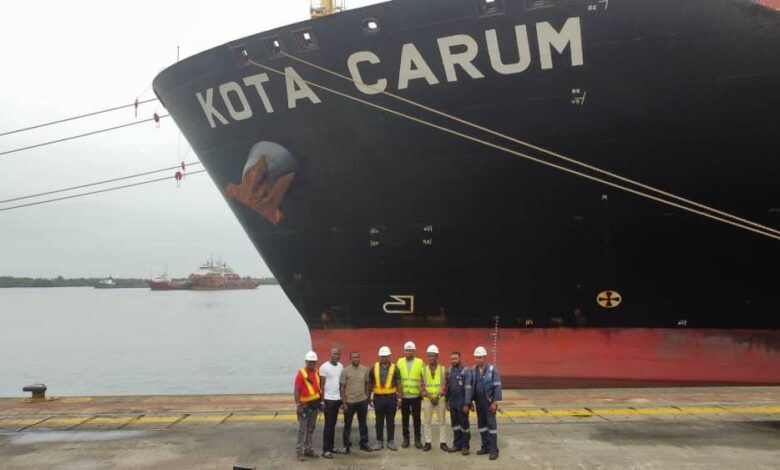
As the Onne Multipurpose Terminal (OMT) berthed its largest vessel in history, its Chief Operating Officer, Jim Stewart has praised the Nigerian Ports Authority (NPA) for improving the port’s efficiency.
According to Stewart, the NPA, under the leadership of the Managing Director, Dr. Abubakar Dantsoho has been instrumental to the successes of the terminal.
The milestone event, which occurred on Wednesday, April 16, 2025, further underscored OMT’s growing prominence as a hub for large-scale maritime trade in West Africa.
Flying the Singaporean flag, the vessel, Kota Carum owned by Pacific International Lines (PIL), one of Asia’s leading shipping companies is a mega container vessel, measuring an impressive 301.43 metres in length overall. It arrived at the OMT jetty at 10:30 hours and was safely berthed by 10:50 hours, utilizing berths 9 and 10.
Boasting a capacity of 6,606 TEUs (Twenty-foot equivalent units), Kota Carum is a major addition to the line of large vessels now calling at Onne Port. During its 55-hour port stay, the vessel discharged 1,250 containers and loaded 1,619 containers—including export-bound cargo and empty containers.
Speaking at a reception to welcome the vessel, Chief Operating Officer of OMT, Jim Stewart expressed appreciation to the NPA for its vital support in creating an enabling environment for OMT to thrive.
His words: “We have an excellent working relationship with the Onne Port Manager, Mr. Abdulrahmon Hussain, and the entire team at the Nigerian Ports Authority. The leadership of the Managing Director, Dr. Abubakar Dantsoho, has been instrumental in our success. Allowing a vessel of this magnitude to berth at our terminal is a vote of confidence in our capabilities”.
He called on the Federal Government to allocate more funding for channel dredging at the Onne Port to accommodate even larger vessels and further boost trade volumes.
“We are fully prepared to receive vessels from any shipping line. But for us to unlock the full potential of Onne Port, additional dredging is essential. We urge the Federal Government to support NPA with the necessary resources to deepen and widen the channels,” Stewart said.
Stewart further described the vessel call at OMT as a landmark event not only for the terminal but for Nigeria’s maritime industry at large.
“We are incredibly honoured to receive the largest vessel to ever berth at Onne. Following the arrival of the Kota Cempaka last year, this achievement reflects our continued growth, our strategic investments in terminal infrastructure, and our unwavering commitment to operational excellence,” Stewart stated.
He emphasised that OMT’s ongoing modernisation efforts, including the acquisition of additional state-of-the-art cranes, have significantly enhanced cargo-handling capabilities and reduced vessel turnaround time.
He noted the economic advantages of hosting such large vessels at Nigerian ports, explaining that direct calls by larger ships eliminate the need for transshipment via smaller feeder vessels, cutting down logistics costs and reducing freight tariffs for Nigerian importers and exporters.
“This is not just a win for OMT; it’s a win for the Nigerian economy. The ability to berth larger vessels means more direct cargo movement, reduced logistics costs, and increased revenue for the country. Freight forwarders also benefit significantly, as they avoid the extra costs associated with transshipment,” he said.
Also speaking at the event, the Chief Pilot of Onne Port, Yakubu Ezra, reaffirmed NPA’s technical readiness to handle large vessels.
“At the Nigerian Ports Authority, we are fully equipped—both in training and technology—to safely pilot large vessels into our ports. The successful berthing of Kota Carum is evidence of our capacity and professionalism,” Ezra said.
The successful hosting of Kota Carum marks a significant leap forward for OMT and positions Onne Port as a viable gateway capable of accommodating global trade routes.
As more shipping lines look toward West Africa, OMT’s infrastructure, efficiency, and strategic location continue to attract increasing volumes of international maritime traffic.


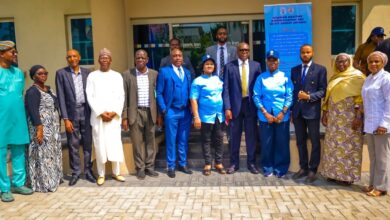
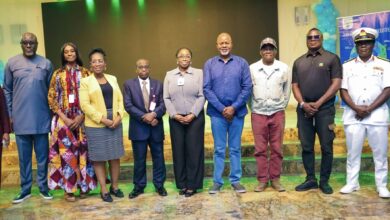
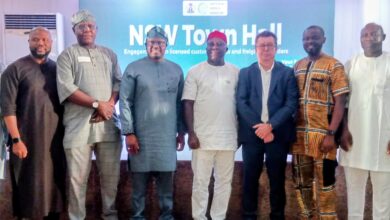


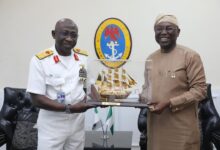
8oughj
q5m81j
68e5ew